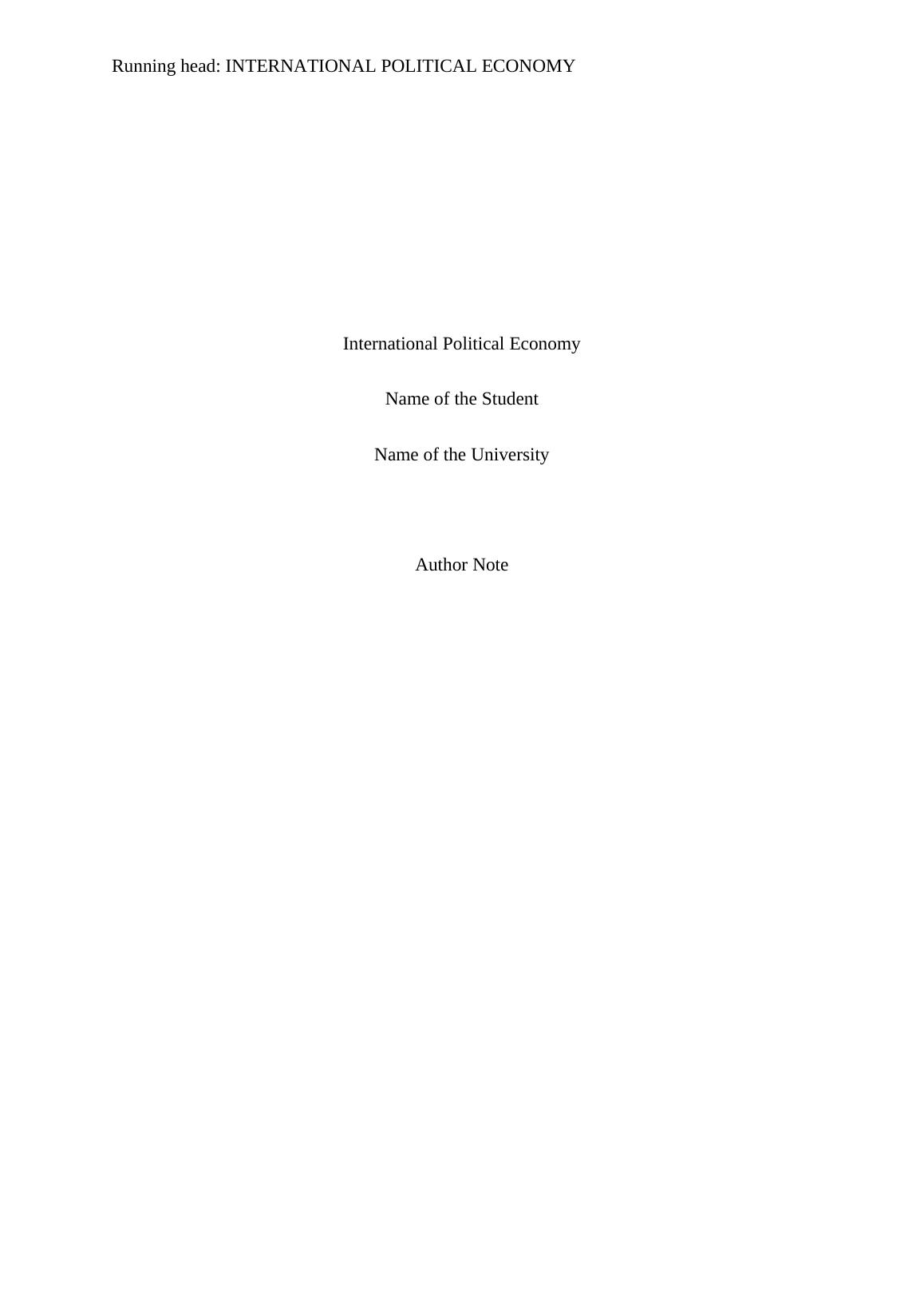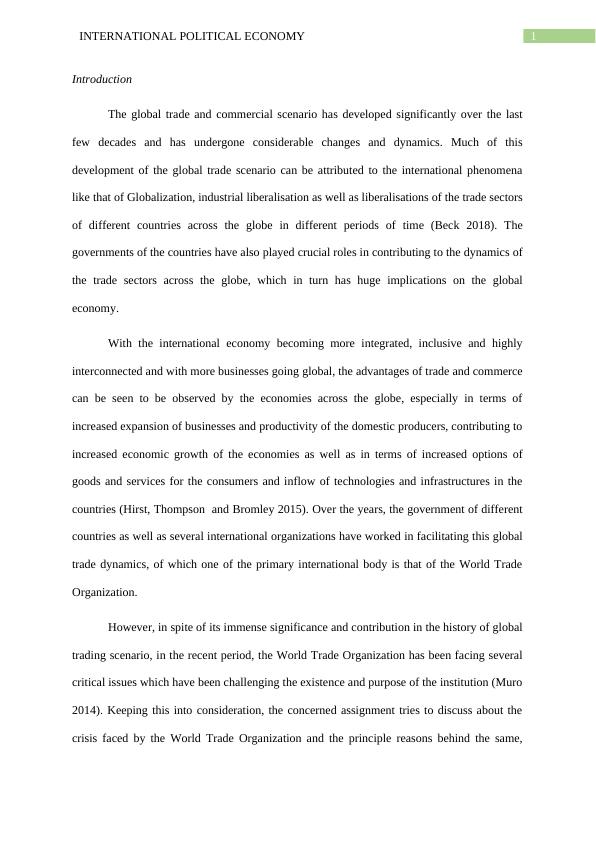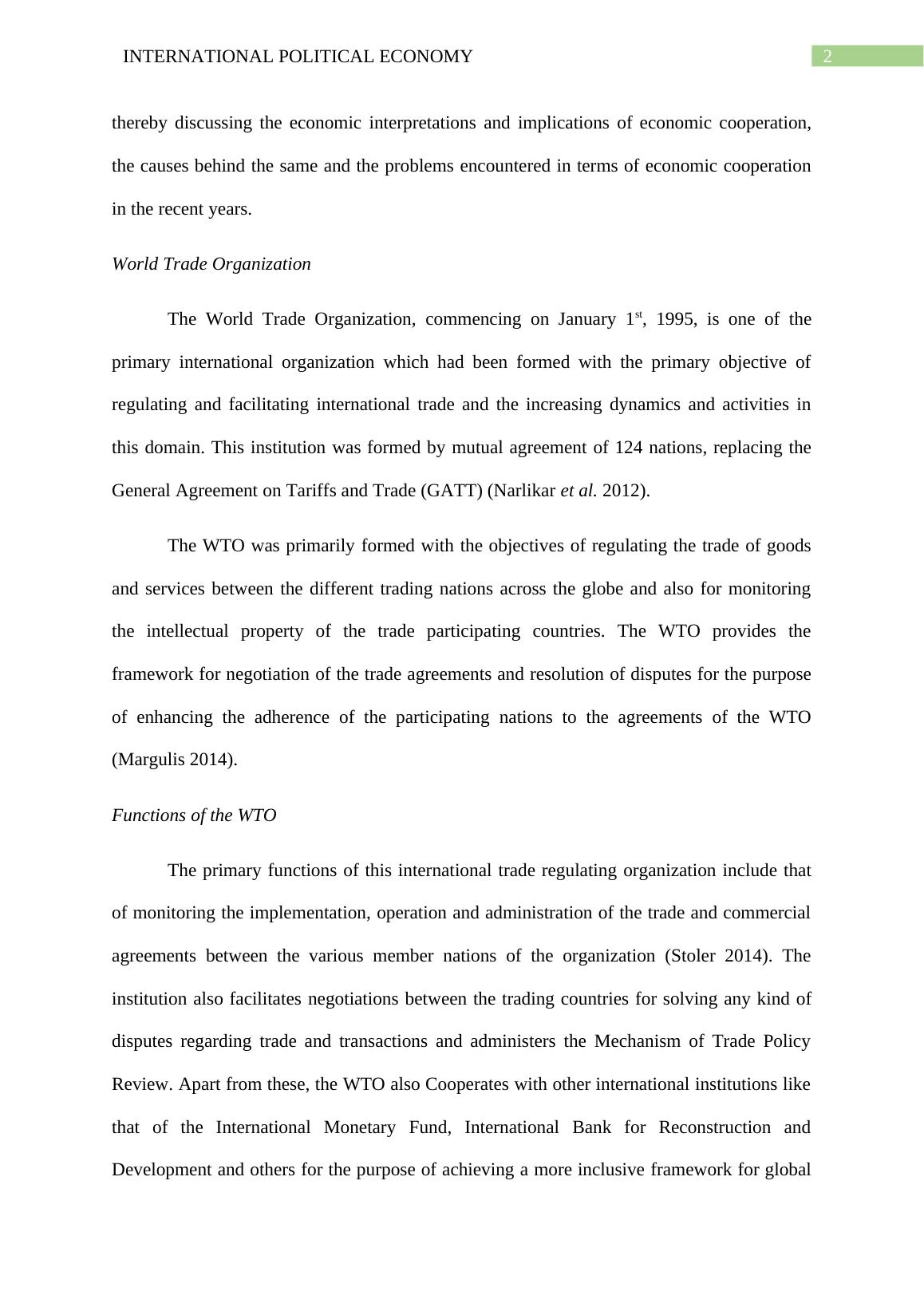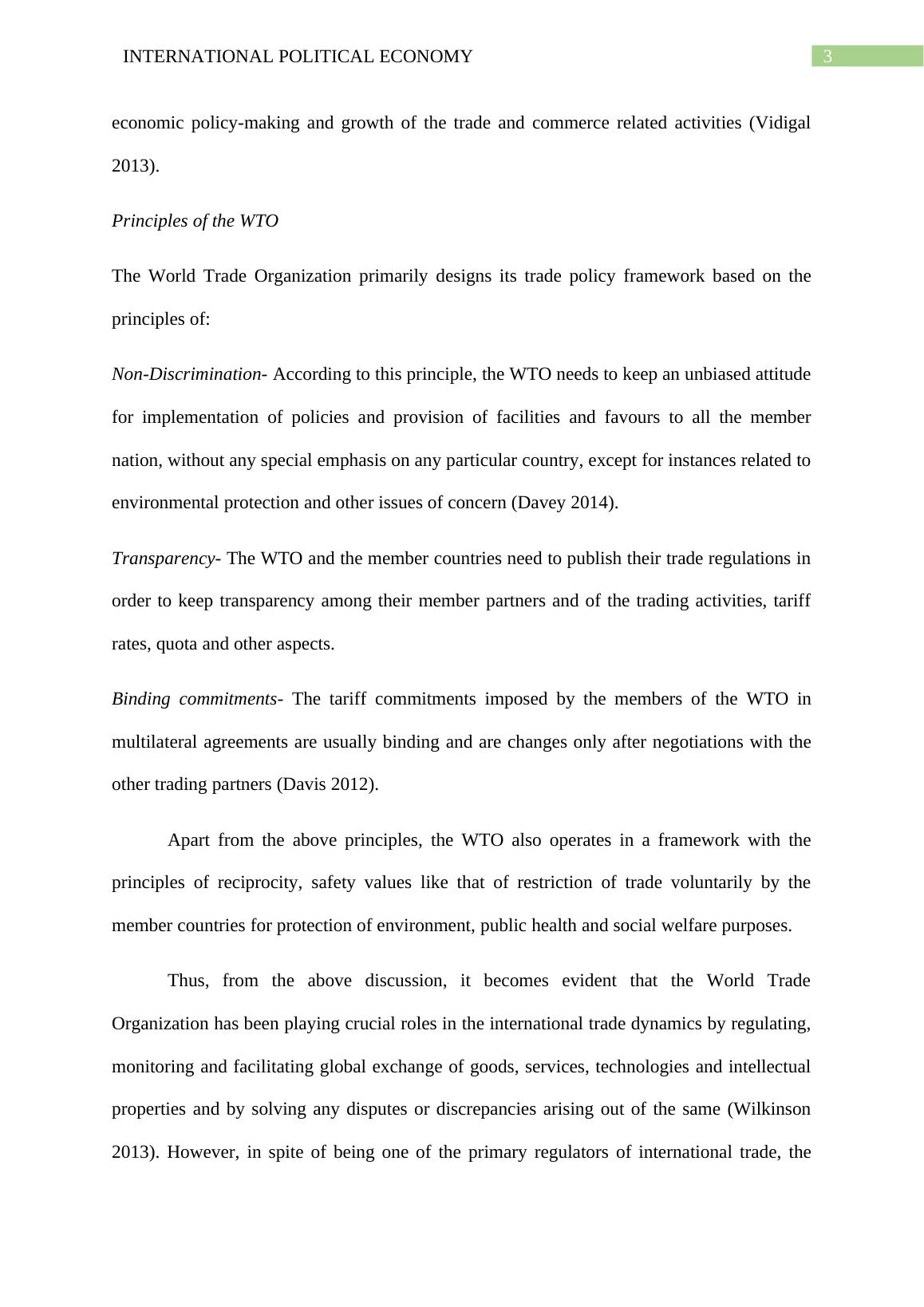Crisis Faced by World Trade Organization: Economic Interpretations and Implications of Economic Cooperation
14 Pages3603 Words391 Views
Added on 2023-06-10
About This Document
This article discusses the crisis faced by the World Trade Organization and the principle reasons behind the same, thereby discussing the economic interpretations and implications of economic cooperation, the causes behind the same and the problems encountered in terms of economic cooperation in the recent years.
Crisis Faced by World Trade Organization: Economic Interpretations and Implications of Economic Cooperation
Added on 2023-06-10
ShareRelated Documents
End of preview
Want to access all the pages? Upload your documents or become a member.
THE ECONOMICS ASSIGNMENT
|12
|3453
|23
The Future of the World Trade Organization (WTO) and International Free Trade
|4
|904
|281
Impacts of Hard Brexit on Businesses
|14
|3258
|335
Economic Policy and Global Environment: Doc
|12
|2865
|24
International Political Economy Paper
|15
|3710
|61
Introducing International Political Economy
|10
|2957
|285




